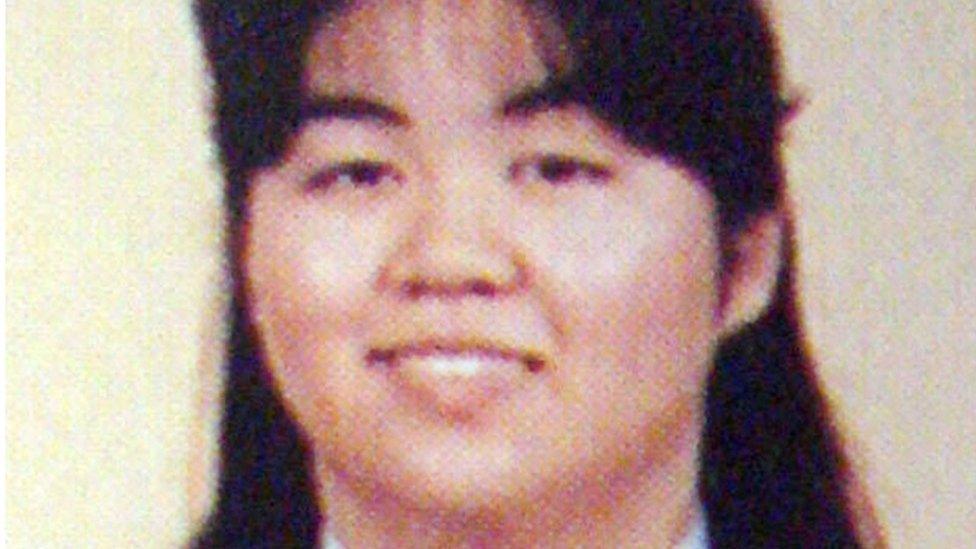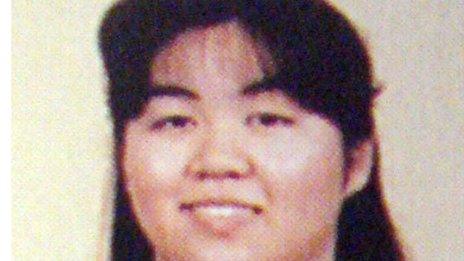Japan 'black widow' loses final appeal against death sentence
- Published

The case has generated massive interest in Japan
A Japanese woman who murdered three lovers in a so-called "black widow" case faces execution after the Supreme Court rejected her final appeal.
Kanae Kijima, now 42, met the three men, aged 41, 53 and 80, online in the Tokyo area in 2009.
Motivated by financial gain, she poisoned them with carbon monoxide after giving them sleeping pills.
It could take years for the hanging of Kijima, who has married twice since being caught, to be carried out.
The death penalty is supported by the majority of the Japanese public.
'See you again'
Kijima burned charcoal briquettes to generate the carbon monoxide when poisoning the men. She killed all three within an eight-month period in 2009.
Her defence team had argued it was probable the men had taken their own lives.
The prosecution case was largely based on circumstantial evidence. Prosecutors said she killed the men so she would not have to pay back the money they had given her.
A court found her guilty in 2012 and the judge said there could be no room for leniency.
The sentence won overwhelming public support in a case that has generated massive interest. More than 1,000 people queued for fewer than 50 seats to hear the original verdict.
The Supreme Court has now backed the ruling that she killed Takao Terada, 53, Kenzo Ando, 80, and Yoshiyuki Oide, 41. An earlier appeal was thrown out by the High Court in 2014.
Kijima, who writes a blog from her detention centre, said in a post on Thursday: "I hope to see you again somewhere someday."
She has changed her surname to Doi while on death row.
In a similar case, 70-year-old Chisako Kakehi is awaiting trial for the alleged killing of several men.
The term "black widow" derives from the female spider that eats its partner after mating.
- Published13 April 2012
